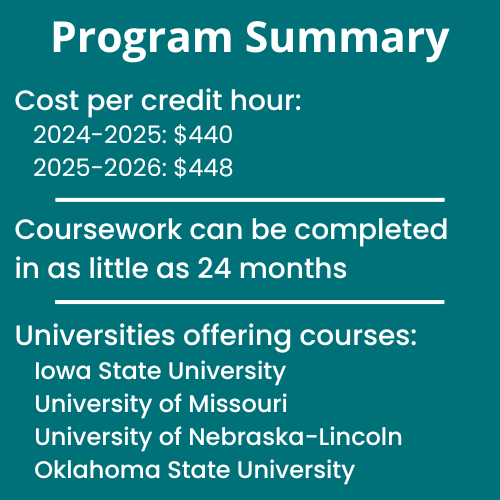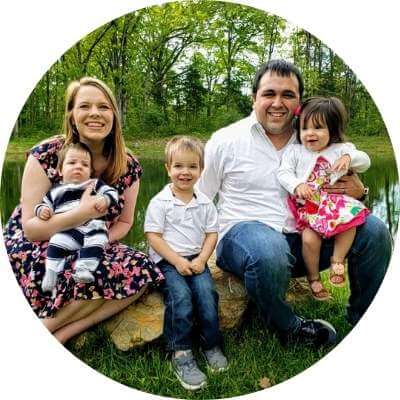The mission of the ECEMS program is to prepare graduates to work with diverse groups of young children, families, and communities in a global society. Graduates are prepared to engage in sensitive and responsive interactions, implement inquiry-focused curriculum, and support children’s development and learning.

Why Study Early Care & Education Through IDEA?
Through IDEA’s ECEMS online bachelor’s completion program, you learn that successful early childhood education depends upon partnerships with children’s families and their surrounding communities. As part of this dynamic program, you will engage in sensitive interactions that reveal the complex characteristics of children’s families and communities.
It is an ideal program if you enjoy working directly with children and families in diverse populations and care deeply about improving the lives of others. Through the degree, you will gain the knowledge and skills necessary to create environments that are healthy, respectful, supportive, and challenging for each child.
Listen to how ECEMS graduate Jacy Phillips was able to balance her professional, personal, and academic responsibilities in this dynamic program.
Program Format of ECEMS
The bachelor’s degree in early care & education for a mobile society is a 120-credit hour baccalaureate program of study that includes completion of 48-51 credit hours of required coursework and other requirements unique to the home university where you are enrolled. The required coursework also includes two practicum experiences that span 9 credit hours and can be completed while taking other courses.
 "I have loved every minute of this program! The teachers are wonderful, the coursework is challenging and engaging, and I have been able to do it while also working full-time and taking care of my three children. During the day, I run a home daycare and I am able to use the techniques and ideas that I have learned in my classes to enhance the learning experience in my home. This degree program has given me the opportunity to learn and grow as an individual, as a mom, and as a teacher."
"I have loved every minute of this program! The teachers are wonderful, the coursework is challenging and engaging, and I have been able to do it while also working full-time and taking care of my three children. During the day, I run a home daycare and I am able to use the techniques and ideas that I have learned in my classes to enhance the learning experience in my home. This degree program has given me the opportunity to learn and grow as an individual, as a mom, and as a teacher."
Emily Buster, ECEMS Graduate
Transformative Early Childhood Education Curriculum
Following your admission to the online ECEMS program, you will complete 48 credit hours in 15 core courses which includes two practicum experiences, plus any remaining credit hours required by the admitting institution for completion of a bachelor's degree. Learn more about the admissions process further down the page.
The engaging curriculum conveys the leading issues facing education for mobile populations. The skill-building course topics include:
- Child Development
- Diversity in the Lives of Young Children and Families
- Health, Safety, and Nutrition
- Assessing Young Children and their Environments
- Adapting for Developmental Differences
- Developing Curriculum
- Working with Families
 "I was approaching my third year volunteering in West Africa when I decided to find a degree program that would allow me to continue my work supporting children overseas. IDEA has been perfect! Learning online has allowed me to focus on the children I foster and my family while providing information that supports my work in child development and helping me care for children better. The incredible faculty have been flexible about the environmental challenges I face with unstable electricity, network, and time differences."
"I was approaching my third year volunteering in West Africa when I decided to find a degree program that would allow me to continue my work supporting children overseas. IDEA has been perfect! Learning online has allowed me to focus on the children I foster and my family while providing information that supports my work in child development and helping me care for children better. The incredible faculty have been flexible about the environmental challenges I face with unstable electricity, network, and time differences."
Jennifer Theriac, graduate of the early care and education for a mobile society bachelor's degree program
Rewarding Program Outcomes
The mission of the Early Care and Education for a Mobile Society (ECEMS) program is to prepare graduates to work with diverse groups of young children, families, and communities in a global society. Graduates are prepared to engage in sensitive and responsive interactions, implement inquiry-focused curriculum, and support children’s development and learning.
The curriculum is designed to ensure that students will meet the professional preparation standards endorsed by the National Association for the Education of Young Children (NAEYC, 2020).
The curriculum and hands-on practicum experience provide exceptional preparation for fulfilling careers in a variety of programs that offer early care and education in the community, including locations such as:
- Childcare centers and homes
- Infant/toddler and preschool programs
- Head Start programs
- Before and after-school programs for children ages birth to eight
- 700+ childcare facilities on military installations around the world
Collaborate with Leading Education Faculty Members Nationwide
IDEA’s ECEMS faculty have in-depth practical knowledge of social-emotional learning and development across the human lifespan. They come from different home universities, blending a range of perspectives and experiences for a unique and enriching online academic environment.
Our faculty are dedicated to your success and care about supporting your academic, personal, and professional goals. They will collaborate directly with you, providing resources and expertise from their extensive experience as practitioners in the field.
Faculty in the early care & education for a mobile society bachelor's degree completion program have put together activity plans with best practices and activity ideas. These resources help you to maximize your skillset in order to make a larger, more immediate impact in your community.
Listen to instructor Chris Kiewra from the University of Nebraska-Lincoln explain why this program was designed the way it is and how it helps students advance in the field of early childhood education.
